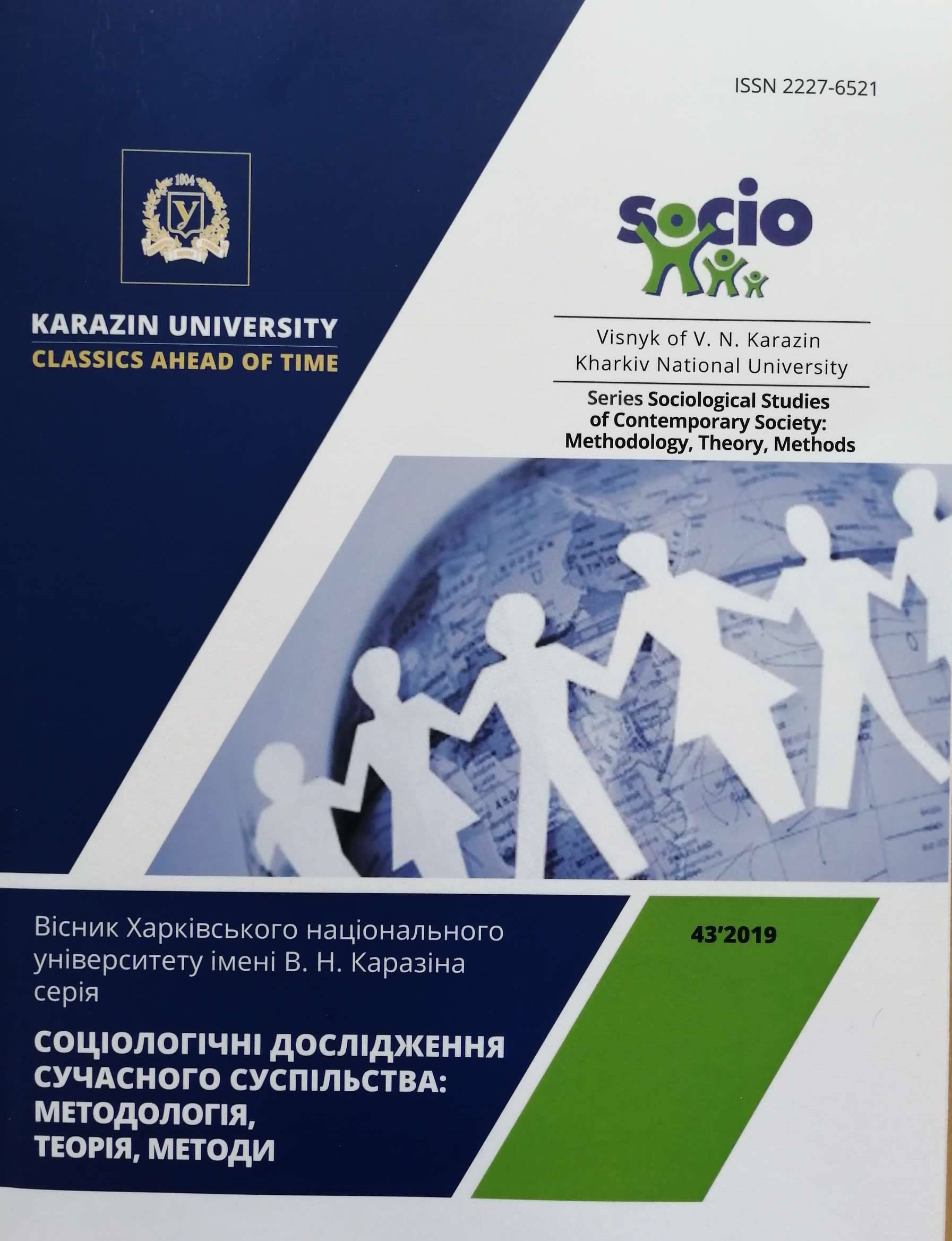Knowledge of Kharkovites about (un)Permissible: Generational Section (by the Result of Empirical Research)
Abstract
The article discusses a specific aspect of the functioning of social knowledge, namely, knowledge of (un)permissible. Based on empirical data obtained in a study conducted according to the World Value Survey methodology in December 2017, the author examines the generational section of the knowledge of Kharkov residents about (un permissible. The influence of gender and age and generational characteristics, as well as the “experience” of living in Kharkov on the permissiveness or veticity of perception of certain social phenomena by a particular group of Kharkovites is analyzed. Separately, the question of the relationship between generational, age and "experience" indicators is studied. It is emphasized that knowledge (namely, knowledge of the permissibility or veticity of some phenomenon, knowledge of its nature and essence) is a product of a social order or orders in the production and reproduction of which the agent participated, which is reflected in his biography, “experience” , social status. The emphasis is on the ratio of violent and non-violent violations, private and public violations, "corporal" and "out-of-body" violations. Perception by various socio-demographic groups is interpreted as a complex multidimensional phenomenon of permissiveness and veticity. The conclusion on the specificity of the factor conditionality of the social production of knowledge on the example of generational and gender-age factors is formulated.
Downloads
References
Бауман З. Индивидуализированное общество. Москва : Логос, 2005. 390 с.
Бауман З. Текучая современность. Санкт-Петербург : Питер, 2008. 240 с.
Beck U., Beck-Gernsheim E. Individualization. Institutionalized Individualism and its Social and Political Consequences. London : SAGE Publications. 2001. XXV+221 p.
Ильин А.Н. Социальная атомизация и ослабление политической активности в условиях консюмеризма. Горизонты гуманитарного знания. 2015. № 5. С. 58-82.
Новиков А.С. Атомизация общества и её роль в становлении "общества масс". Теория и история. 2009. № 2. С. 192-197.
Picot G. Politics of Segmentation: Party Competition and Social Protection in Europe. Routledge. 2013. 225 p.
Суименко Е.И. Капитализм в нашем доме. Взгляд сквозь призму теории и социальной эмпирии. Киев : Институт социологии НАНУ, 2007. 512 с.
Golikov A.S. Kharkovians’ Media Consumption: Knowledge, Groups and Specific. Media i Społeczeństwo. 2018. № 9. Pp. 86-111.
Голіков О. С. Недопустиме як структура в соціальному знанні: емпіричний ескіз на прикладі сприйняття харків’ян. Український соціум. 2019. № 1(68). С. 40-61
Голіков О.С. Знання та практики: діяльнісне конструювання відомого та невідомого (на прикладі правової обізнаності). Український соціум. 2017. № 3 (62). с. 20-32.
Golikov A.S. “The Permitted” and “The Forbidden”: (Un)Acceptable in Khowledge Structures of Kharkivites (an Empiric Research). East/West: Journal of Ukrainian Studies. Special Issue: Kharkiv. The City of Diversities. 2019.
Elias N. Society of Individuals. London : Continuum International Pub. Group. 2001. 258 p.
Costa C., Murphy M.(eds.) Bourdieu, Habitus and Social Research: The Art of Application [1 ed.]. Basingstoke : Palgrave Macmillan. 2015. X+190 p.
Голіков О.С. Фабрикація порядку. Знання в конституюванні соціального. Харків : ХНУ імені В.Н. Каразіна, 2018. 592 с.





